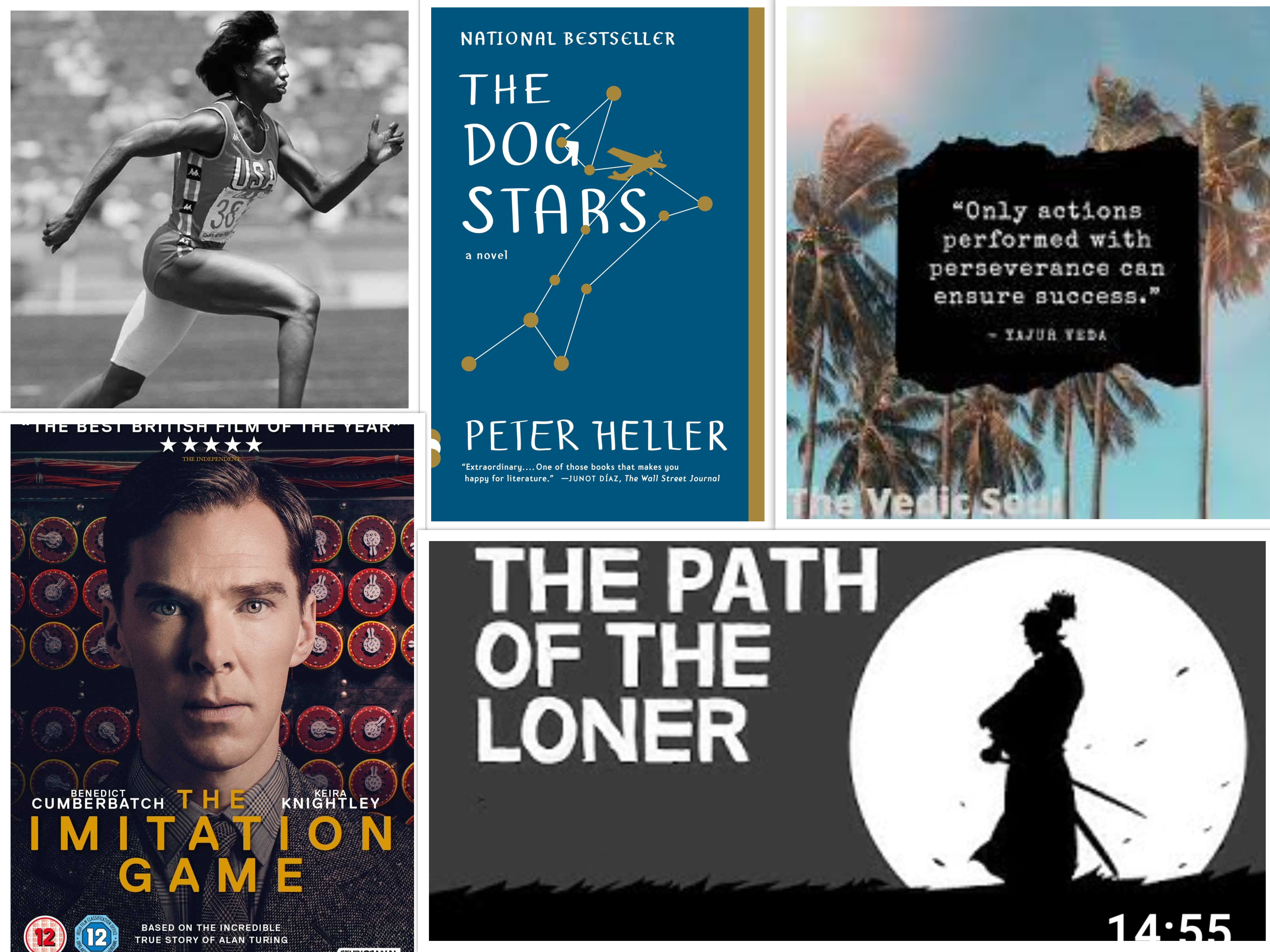Sunday Supplement #21 (October 3rd, 2021)
Below is another Sunday Supplement with a quote worth sharing, a book worth reading, a movie worth watching, brainfood worth consuming, and a spiritual passage worth pondering.
I hope you take something away from these recommendations that enriches your week ahead!
Quote of the Week:
“The truth is unless you let go, unless you forgive yourself, unless you forgive the situation, unless you realize the situation is over, you cannot move forward.”
– Steve Maraboli
Book of the Week:
Frankenstein – Mary Shelley
Mary Shelley’s Frankenstein is a classic tale that has been retold many times over the years. None of the adaptations of her work that I’ve seen or read comes close to the original.
Frankenstein tells the story of a young scientist, Victor Frankenstein, and his experiment to create a sapient creature. He is horrified by the result and must come to terms with what he made. The novel is written in epistolary format and has points of view from both Frankenstein and the Monster.
Shelley came up with the idea for Frankenstein while on holiday with her future husband. She and Percy Shelley were in Switzerland with the poet Lord Byron and writer John Polidori and had a competition of who could come up with the best horror story. History proved that Mary Shelley won that competition.
The novel first came out in 1818, anonymously published, but was later attributed to Mary Shelley in the second addition in 1821. I first read this book in high school and wasn’t expecting a book from the 1800s to be readable or enjoyable. It turned out to be both. The prose flowed easily, and the themes of creation, injustice, and alienation stuck were striking.
I’m clearly not the only one who finds Frankenstein a masterpiece. If you haven’t decided to read it yet, I highly recommend putting it on your to-read list.
Movie of the Week:
Sweeney Todd: The Demon Barber of Fleet Street
Sweeney Todd has a rich history. He first appeared as a villain in the penny dreadful series The String of Pearls in 1846. The tale of Sweeney Todd has been told and expanded upon over the years. Before the 2007 Tim Burton film, the most famous rendition was the Tony award-winning Broadway musical written by Stephen Sondheim and Hugh Wheeler, adapted from Christopher Bond’s play Sweeney Todd: The Demon Barber of Fleet Street.
Tim Burton’s film tells the story of Benjamin Barker (played by Johnny Depp) as he returns to London fifteen years after Judge Turpin falsely convicted him. The judge, played by Alan Rickman, lusted after Barker’s wife and exiled the barber so he could have her. Barker returns to Fleet Street as Sweeney Todd and plots his revenge. He teams up with baker Mrs. Lovett (played by Helena Bonham Carter), creating a sinister partnership.
Sweeney Todd is a pretty grisly film. The horror genre is not one I’m particularly fond of, as I explained in Sunday Supplement #4, but if a story is well-done, I’ll give it a chance. The acting is superb, and the music is wonderfully crafted. Screenwriter John Logan adapted the musical for the screen, and the result is a dark but brilliantly crafted tale brought to life by Tim Burton.
Brainfood of the Week:
Kati Morton – Why is it So Hard to Forgive Ourselves?
Kati Morton is a licensed therapist, author, and podcaster who makes mental health videos on YouTube. Her following is over one million people, and she specializes in family and marriage therapy.
In this video, Morton goes over some of the reasons behind why we continue to replay incidents in our heads and how we can move past them.
One of the causes of getting thought in a negative feedback loop is a form of self-punishment or a way to self-sabotage. We can go over an incident, again and again, to give ourselves justification for current feelings, which, left unchecked, can become a harmful habit.
The key to moving on is forgiving ourselves or others and breaking that habit. A method that Morton goes over that has been helpful to me is “thought-stopping.” I first came across this concept from Michael A. Singer, who I highlighted in Sunday Supplement #12. The idea is to start to catch yourself when you have negative thoughts and make thinking a conscious choice. The more you catch yourself, the more it becomes a habit. Make sure to be kind when practicing thought-stopping, and choose how you want to move forward.
It can be tough to forgive yourself or others, but this is a great short video to pick up some valuable habits.
Closing Spiritual Passage:
“Love prospers when a fault is forgiven, but dwelling on it separates close friends.”
– Proverbs 17:9
This passage reminds me of the times when I struggle to let things go. Those could be events in the past or behaviors of others (or myself) that hurt me. When I dwell on those times with negative thoughts, I feel cold.
Different lessons hit me in different ways at times. I think I’ve figured something out from my past, only for it to come up in another way that shows me I need to do more healing. I’ve learned to approach this with love, though.
In previous Sunday Supplements, I’ve discussed the need to be kind to ourselves, but this passage from Proverbs reminds me that the faults of others need to be forgiven as well. Mark Twain’s quote sums it up best— “Anger is an acid that can do more harm to the vessel in which it’s stored than to anything on which it’s poured.”
Forgive yourself or someone else, and have a blessed week ahead!
Comments closed



